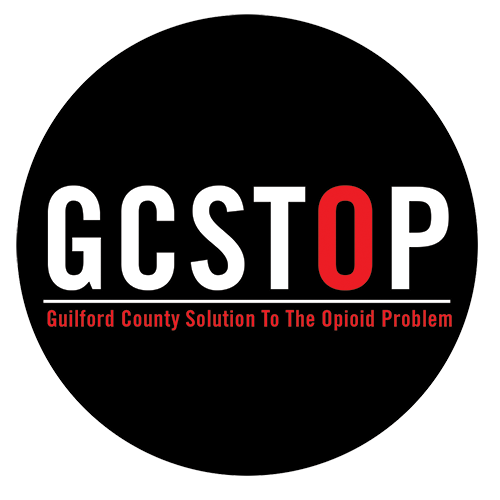Partnering with PFAs on Patient Education: Beaumont Health
 In July 2018, new state laws took effect in Michigan that prohibit physicians from writing prescriptions for more than a seven-day supply of opioid medications for patients with acute pain. Beaumont Health partnered with PFAs to develop a letter to patients that describes the new legislation and includes supportive language and positive messaging while also clearly communicating elements of the law. The letter also refers patients and families to a website that Beaumont Health established to provide patients with resources and strategies for coping with and self-managing pain.
In July 2018, new state laws took effect in Michigan that prohibit physicians from writing prescriptions for more than a seven-day supply of opioid medications for patients with acute pain. Beaumont Health partnered with PFAs to develop a letter to patients that describes the new legislation and includes supportive language and positive messaging while also clearly communicating elements of the law. The letter also refers patients and families to a website that Beaumont Health established to provide patients with resources and strategies for coping with and self-managing pain.
A Comprehensive Approach to Addressing Opioid Use in North Carolina: Guilford County Solution to the Opioid Problem (GCSTOP)
 The community’s response to the opioid crisis in Guilford County, NC has united a varied set of community partners including law enforcement, emergency responders, county and city officials, treatment and healthcare providers, public health educators, harm reduction advocates, university researchers, former users, family members of persons who died from opioid overdose, students, and concerned members of the community. This response created CURE Triad, a community coalition with the mission “to bring together community members to leverage our resources and create mechanisms to provide a more unified approach to address addiction in our community.” Out of this coalition, a partnership emerged between the Guilford County Division of Public Health (GCDPH), Guilford County Emergency Services (GCES), and the University of North Carolina at Greensboro (UNCG) that resulted in the creation of innovative efforts to address the local opioid problem. Launched in late 2017, GCSTOP aims to reduce risk of fatal overdose by addressing opioid use from a reduction-use perspective by using non-judgmental language, motivational interviewing to move individuals toward embrace of medically assisted treatments (MATs), and other evidence-based treatments.
The community’s response to the opioid crisis in Guilford County, NC has united a varied set of community partners including law enforcement, emergency responders, county and city officials, treatment and healthcare providers, public health educators, harm reduction advocates, university researchers, former users, family members of persons who died from opioid overdose, students, and concerned members of the community. This response created CURE Triad, a community coalition with the mission “to bring together community members to leverage our resources and create mechanisms to provide a more unified approach to address addiction in our community.” Out of this coalition, a partnership emerged between the Guilford County Division of Public Health (GCDPH), Guilford County Emergency Services (GCES), and the University of North Carolina at Greensboro (UNCG) that resulted in the creation of innovative efforts to address the local opioid problem. Launched in late 2017, GCSTOP aims to reduce risk of fatal overdose by addressing opioid use from a reduction-use perspective by using non-judgmental language, motivational interviewing to move individuals toward embrace of medically assisted treatments (MATs), and other evidence-based treatments.
Empowering Individuals and Communities to Address Narcotic Addiction: Families Against Narcotics
 Started in 2007, Families Against Narcotics (FAN) is a grass roots organization in Michigan that aims to raise awareness about narcotic use; provide education to youth, adults, parents, school personnel, law enforcement, judges, and health care professionals; and support those affected by narcotic addition. Currently, the organization has 20 chapters in Michigan and, in 2017, launched its first out-of-state chapter in Madison, North Carolina. A key component of FAN’s model involves fostering relationships within the recovery community and working with individuals whose lives have been touched by narcotic addiction. Through FAN’s “Real People Sharing Real Stories,” parents affected by addiction and young people in recovery share their stories in schools to raise awareness and provide education to the community. FAN’s “Hope Not Handcuffs” program, which was started by a mother who experienced her daughter’s addiction, creates partnerships with law enforcement and community organizations to help individuals seeking treatment.
Started in 2007, Families Against Narcotics (FAN) is a grass roots organization in Michigan that aims to raise awareness about narcotic use; provide education to youth, adults, parents, school personnel, law enforcement, judges, and health care professionals; and support those affected by narcotic addition. Currently, the organization has 20 chapters in Michigan and, in 2017, launched its first out-of-state chapter in Madison, North Carolina. A key component of FAN’s model involves fostering relationships within the recovery community and working with individuals whose lives have been touched by narcotic addiction. Through FAN’s “Real People Sharing Real Stories,” parents affected by addiction and young people in recovery share their stories in schools to raise awareness and provide education to the community. FAN’s “Hope Not Handcuffs” program, which was started by a mother who experienced her daughter’s addiction, creates partnerships with law enforcement and community organizations to help individuals seeking treatment.